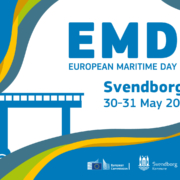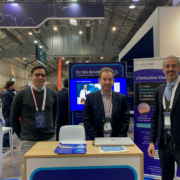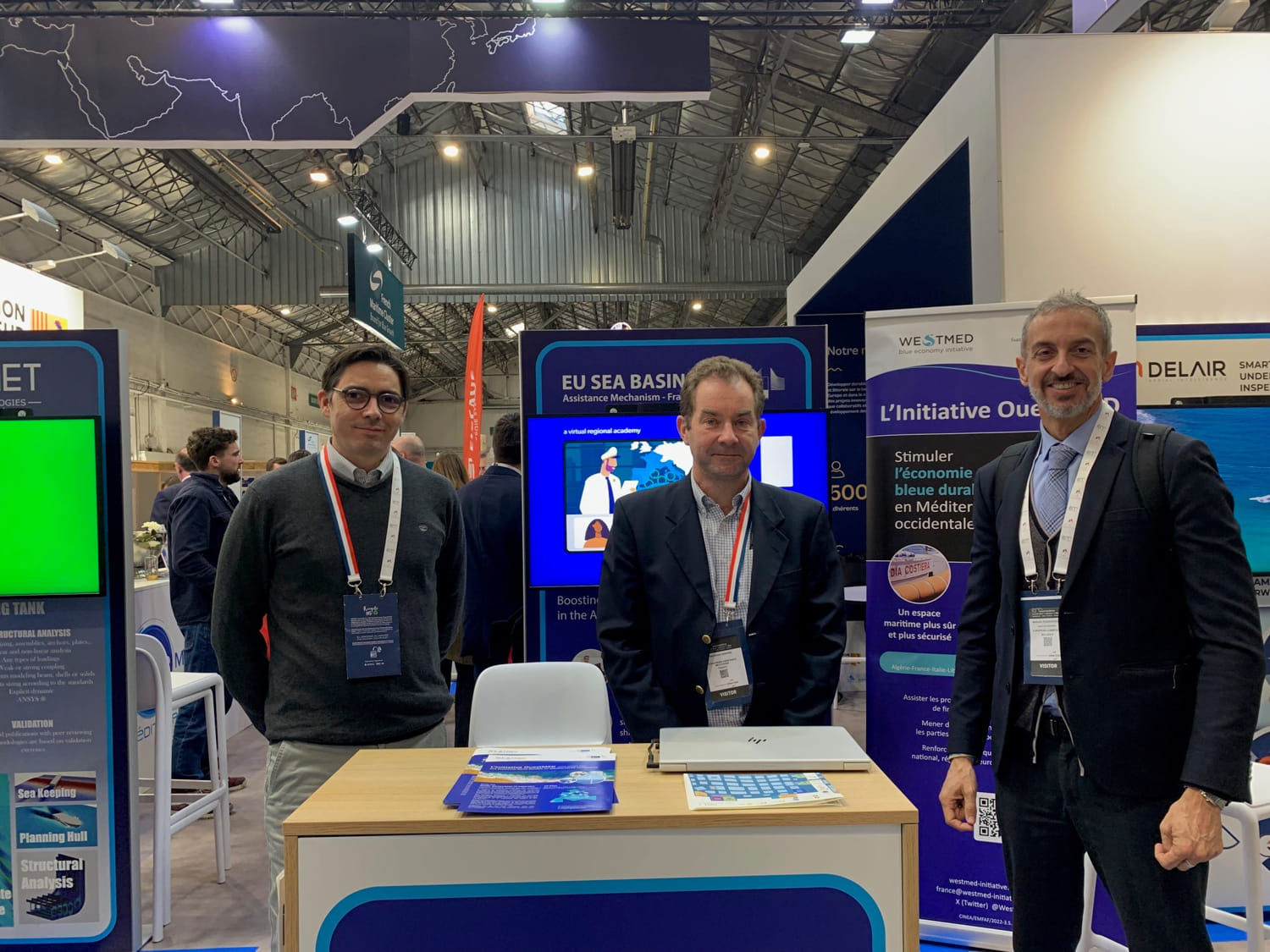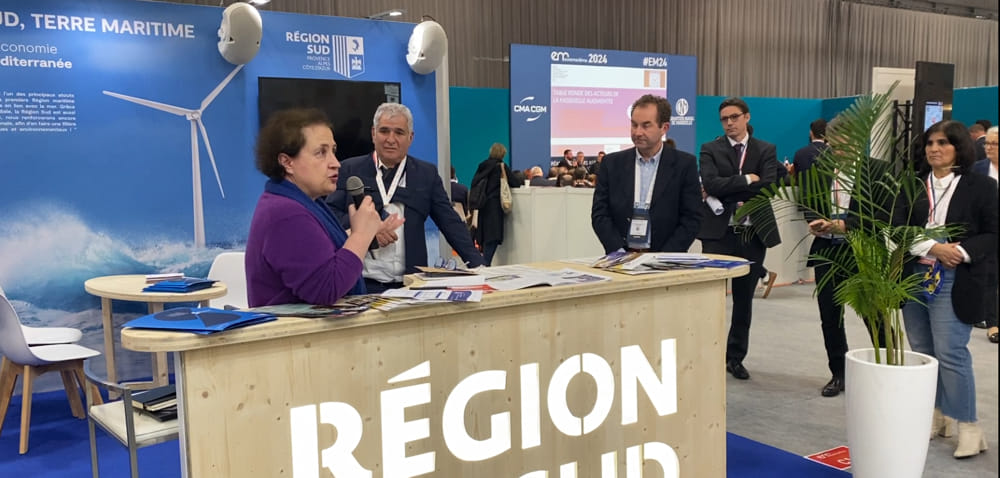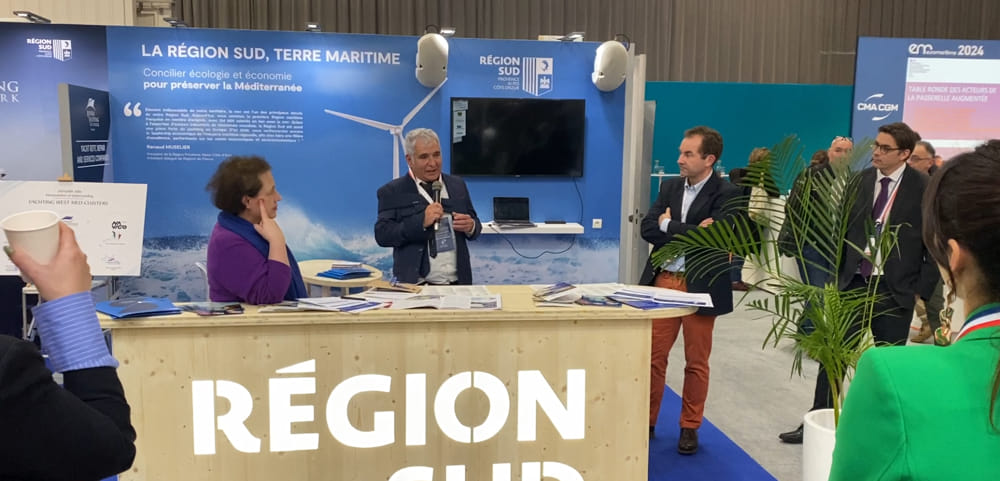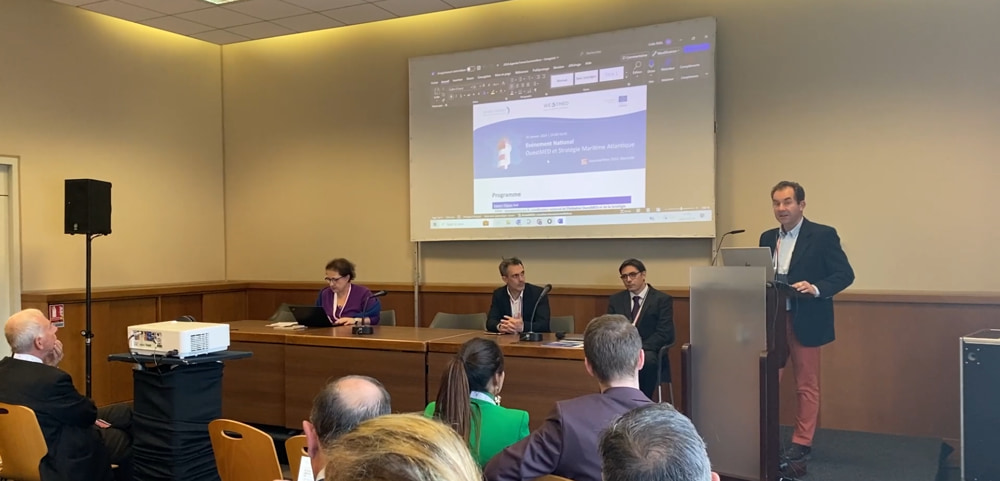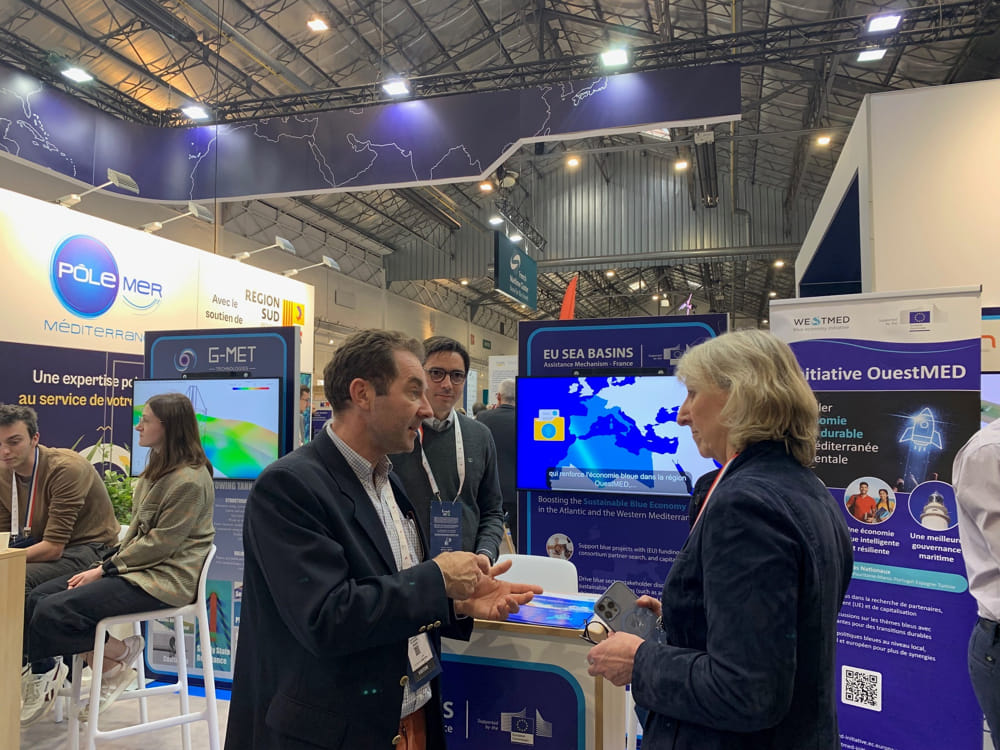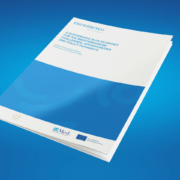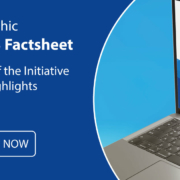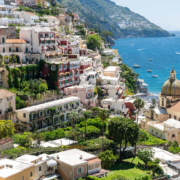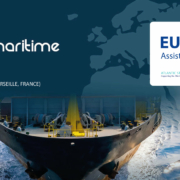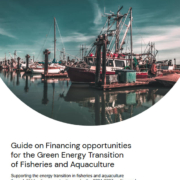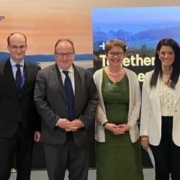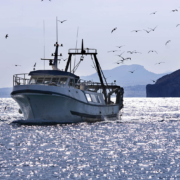Maritime industry leaders and enthusiasts gather in Marseille from 30 January to 1 February 2024, to discuss the latest developments in the maritime and river sectors at EUROMARITIME which has been both a showcase and a business accelerator since its creation in 2020.
The event serves as a vibrant forum for stakeholders to engage in discussions surrounding current issues, technical advancements, and political developments. EUROMARITIME provides a unique platform for economic, industrial, political, and institutional players to address the challenges and opportunities within maritime transport, shipbuilding, ship repair, port economics, and the future of maritime technologies with the end goal of developing a sustainable and low carbon Blue Economy.
It will also mark the launch of the first EurAfrican Maritime Forum (FoMEA), dedicated to promoting blue economy and maritime development in Africa and is therefore strongly linked to the activities of the WestMED Initiative on the Southern shore of the Mediterranean.
This event within an event, which will bring together African maritime players with projects, institutions, port authorities and shipping company managers, will take place on Thursday 1st February 2024.
Visit us for new maritime project ideas, collaborations, and initiatives
Fully aware of the growing importance of sustainable practices within the maritime industry and following the previous attendance from the WestMED French National Hub in 2020 and 2022 editions, the EU Sea Basins Assistance Mechanism – France (representing the WestMED Initiative and the Atlantic Action Plan) will be exhibitor at EUROMARITIME. With various maritime sectors transitioning towards sustainability, the European Commission has recognized the need for concerted efforts in fostering a safer, smarter, and more resilient blue economy.
Supporting and implementing strategic blue economy initiatives for the Atlantic, the Western Mediterranean, and the Black Sea, the EU Sea Basins Assistance Mechanism brings together maritime experts from all these sea basins. These experts offer practical support to SMEs, research institutions, policymakers, and academia, in the different steps to develop their blue sustainable projects, both in terms of accessing potential EU funding and finding project partners.
Workshop by the French national hub of the EU Sea Basins Assistance Mechanism | 30 January (14:00-17:00)
On 30 January (afternoon), the French national hub of EU Sea Basins Assistance Mechanism will organise a national event at the EuroMaritime. This will take the form of a dedicated workshop highlighting their activities with a focus on 2 main topics:
- French regions’ Blue actions ; in particular Region Sud and its cooperation with Southern Shore Mediterranean countries
- The role of the two EU Sea Basin strategies (WestMED Initiative and Atlantic Action Plan) and building on their synergies, to facilitate new projects and cooperation
It will be also the opportunity to recall opportunities and discuss blue project ideas supporting the EU strategies for both seabasins.
Download the agenda
Key Activities of the EU Sea Basins Assistance Mechanism:
- Supporting project development: The mechanism actively supports blue projects by facilitating partner searches for consortiums and providing guidance on securing EU funding. This assistance aims to propel projects from conception to implementation. This comes to live through the implementation of the Sea Basins Initiatives, following the goals set in the two Ministerial Declarations from each Sea Basin that were approved in 2023 (further information can be found in the Atlantic Ministerial Declaration and WestMED Ministerial Declaration).
- Driving Blue Thematic Stakeholder Discussions: To foster sustainable transitions, the Assistance Mechanism initiates and moderates discussions among stakeholders. These discussions contribute to the development of innovative solutions and best practices for a more sustainable and resilient blue economy.
- Strengthening Blue Policies at All Levels: Working at the local, national, regional, and EU levels, the Assistance Mechanism advocates for robust blue policies that encourage synergies within and between Sea Basins, following the objectives of the Sea Basin Initiatives. By aligning policies with sustainability goals, the mechanism aims to create an enabling environment for the development of blue projects.
As EUROMARITIME unfolds in Marseille, the convergence of maritime industry leaders and the presence of the EU Blue Economy Assistance Mechanism promise to spark new ideas, collaborations, and initiatives that will shape the future of the maritime industries.
For those eager to explore the forefront of maritime innovation and sustainability, visit the official EUROMARITIME website
Meet the EU Sea Basins Assistance Mechanism at the stand of Pole Mer Mediterranee (B06).
Follow us online for the latest information regarding planned exhibition activities:
X (Twitter): WestMED | Atlantic
LinkedIn: Atlantic
Newsletter: WestMED | Atlantic
You can also contact the Assitance Mechanism’s National Hub in France directly via france@westmed-initiative.ec.europa.eu | france@atlantic-maritime-strategy.ec.europa.eu

